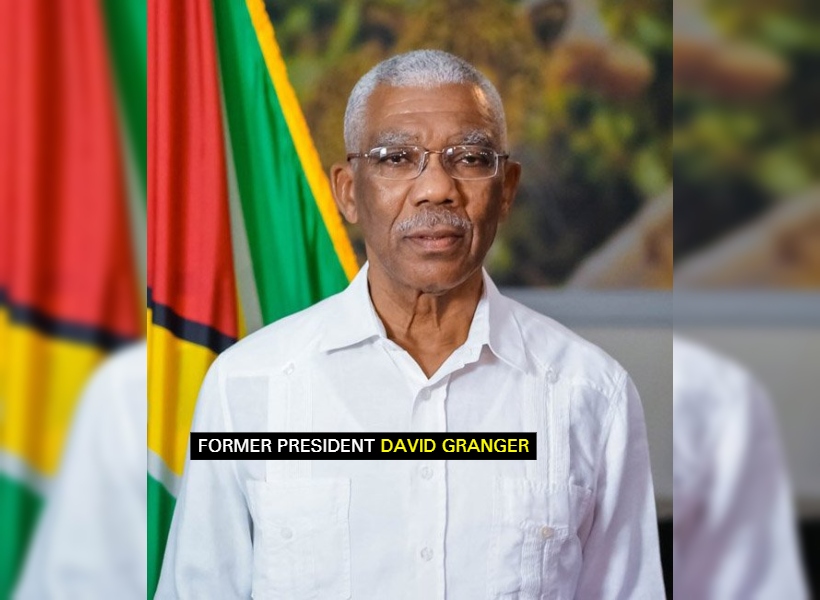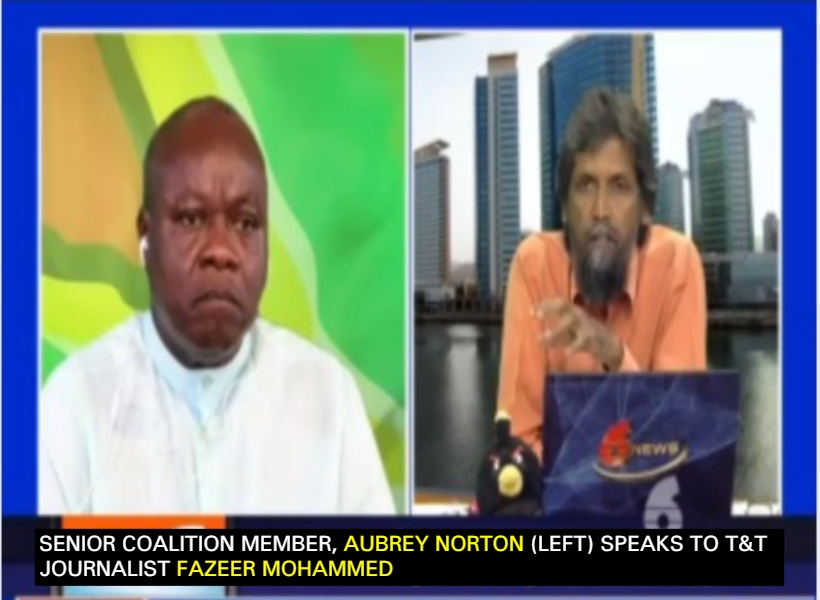By Feona Morrison
One would have thought Wednesday’s ruling by the Caribbean Court of Justice (CCJ) would have at least brought some degree of finality to Guyana’s current electoral impasse. But in the eyes of Senior Coalition Member, Aubrey Norton, the Regional Court has played political gymnastics and has created more problems. Furthermore, he expressed much disappointment and skepticism at the Court’s ruling categorically stating “it amounts to nothing.”
Norton made these assertions and more during a recent interview with Trinidad and Tobago’s TV6 News journalist, Fazeer Mohammed on Guyana’s elections entanglement which has been ongoing for more than four months as a result of widespread claims of electoral fraud regarding the March 02, 2020 polls.
Asked by Mohammed for his reaction to the Court’s ruling, Norton said, “We thought it is unfortunate that the CCJ would claim jurisdiction when the law is clear that they did not have jurisdiction. I believe what the CCJ has done is essentially created more problems than solving the problems.”
According to him, Senior Counsel Douglas Mendes who represented the People’s Progressive Party/Civic regularly pointed out that they did not believe [the CCJ] had jurisdiction. However, based on Mendes’s submissions seen and heard by Guyana Standard, this can be disputed.
In the submissions to the CCJ, Mendes specifically argued that if the questions raised in the Notice of Motion filed by government support Eslyn David fall within the ambit of Article 177 (4) of the Constitution, then the CCJ does not have the jurisdiction to hear the case, given the finality clause contained in that constitutional provision which makes any decision by Court of Appeal final.
The Senior Counsel submitted that if the foregoing is not the case, then the CCJ, therefore, has all authority conferred upon it by the Constitution and Laws to hear and determine the case. The CCJ unanimously agreed with Mendes’ arguments, and in its 60-page written judgment offered a detailed reasoning to substantiate its position.
Norton said, too, “Let us not forget first that there was an objection to [Region 4’s Returning Officer Clairmont] Mingo’s declaration. The Courts then said that they had jurisdiction to hear it before a declaration. Many of us disagreed because in Norton vs the AG in 1997, the Court ruled that you had to have a declaration then go to [an election] petition. We accepted that ruling. Now, they [CCJ] are [saying] GECOM had jurisdiction to become involved in a recount; they are now using the recount selectively and not dealing with it comprehensively. They want to use tabulation but do not want to use the reconciliation; now that is selective and political, rather than legal.”
In light of the foregoing, Norton pointed out that the CCJ has created their own conundrum by one time saying the case can be heard before an election petition, then the next time, that it cannot.
“What that does is create inconsistencies and I believe the CCJ has thrown Guyana back to the status quo ante since all the decisions they would have made amounts to nothing. So we are back to square one [back to Clairmont Mingo’s highly controversial declaration],” he added.
During the interview, the Senior Coalition Member explained that the only declaration outside of the recount, is that of Mingo’s, and that if you are saying that the tabulation aspect of the recount Order can be used, but not the reconciliation, then that is another contradiction.
According to Norton, there is also the nullification of the election because it is clear you cannot get credible votes from the recount process.
He further added, “So I believe that rather than helping us to solve the problem, the CCJ has played political gymnastics and left us at a point where we are back at the Elections Commission…I would have liked to see the CCJ not put itself in this credibility crisis by shifting the goal post.”
Questioned by Mohammed whether the APNU+AFC is going to abide by the ruling of the CCJ, Norton had this to say, “We do not know what is the ruling.”
He continued, “The ruling seems to be: They [the CCJ] said that the Court of Appeal does not have jurisdiction; we do not know how they arrived at that because in our opinion, they didn’t have jurisdiction. And all they did was to throw the ball back at the Elections Commission and we [APNU+AFC] have said we will abide by the rules of the Elections Commission.”
Among other things, Norton, who served as General Secretary of the People’s National Congress (PNC) , the largest party inside the Coalition, noted, “Any objective analysis will show that the APNU+AFC and President [David] Granger have lived by the Rule of Law throughout. But the law is being shifted at the economic power of the PPP/C; that is the reality.”











